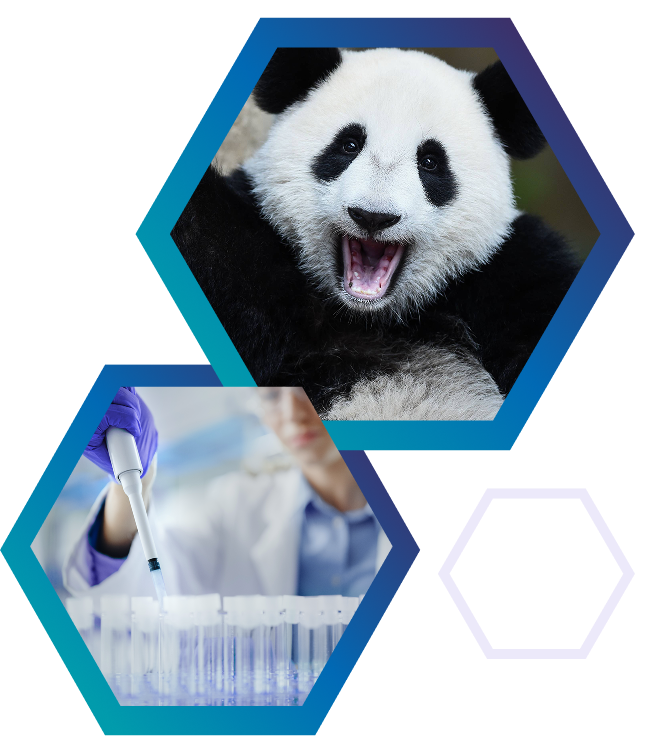
Why ELISAs Are Cost-Effective Solutions for Large-Scale Sample Processing
When it comes to large-scale sample processing, researchers must find a cost-effective solution without sacrificing quality and accuracy. Cost-effective ELISA processing may be the best answer.
Traditional methods often come with high costs and logistical challenges, making the search for efficient alternatives a priority. Particularly in academic research, wildlife care, and pharmaceutical development, the pressure to balance budget constraints with scientific rigor is a constant struggle.
ELISAs (Enzyme-Linked Immunosorbent Assays) easily enable large-scale sample processing with their cost-effectiveness, versatility, and reliability. By leveraging the specificity of antibodies and the sensitivity of enzyme detection, ELISAs provide accurate quantification of target molecules.
Let’s explore 7 ways ELISAs improve large-scale sample processing:
1. Reduced Reagent Costs
One of the primary reasons ELISAs are cost-effective is the reduced reagent costs. ELISAs typically require smaller volumes of reagents compared to other methods, which significantly cuts down on expenses. Bulk purchasing of reagents for ELISAs can further lower costs, making it a financially viable option for labs processing thousands of samples.
2. High Throughput Capabilities
ELISAs are designed for high throughput with 96-well and 384-well plate formats. This efficiency not only saves time but also reduces labor costs. Automated ELISA systems can handle hundreds of samples in a single run, streamlining workflows and increasing productivity.
3. Minimal Equipment Investment
Unlike some high-tech analytical methods that require expensive specialized equipment, ELISAs can be performed with relatively minimal investment. Standard laboratory equipment such as microplate readers, pipettes, and plate washers are sufficient for most ELISA protocols. This accessibility reduces the financial barrier to entry for many labs.
4. Consistency and Reliability
Consistency in results is vital for large-scale studies, and ELISAs deliver on this front. The well-established protocols and standardized reagents used in ELISAs ensure reproducibility across runs. This reliability is particularly important for longitudinal studies and clinical trials where data integrity is paramount.
5. Versatility Across Applications
ELISAs are incredibly versatile, capable of detecting a wide range of analytes, including proteins, peptides, hormones, and antibodies. This adaptability makes ELISAs suitable for various fields such as immunology, endocrinology, virology, oncology, and more. The ability to use one method across different types of studies further enhances its cost-effectiveness through minimal equipment investment.
6. Simplified Data Analysis
Data analysis in ELISAs is straightforward, with many plate readers providing built-in software for automated data interpretation. This simplification reduces the need for extensive training, minimizes data processing errors, and maximizes workflow efficiency.
7. Eco-Friendly Approach
ELISAs contribute to sustainability in the lab by generating less chemical and biohazard waste compared to other methods. The smaller reagent volumes are easier to collect and dispose of properly, reducing the risk of environmental contamination through waste water and helping labs meet environmental goals while managing costs.
What’s Next?
At Arbor Assays, we understand the need for cost-effective ELISA processing with reliable solutions. Our comprehensive range of ELISA kits is designed to meet the diverse needs of researchers, offering high sensitivity, specificity, and efficiency. Our kits come with clear, simple protocols and are supported by a dedicated customer service team to ensure your research runs smoothly.
Discover how Arbor Assays can help you optimize your large-scale sample processing. Visit our website to learn more about our products and how we can support your research goals.
Featured Products
-
In Stock
Cortisol ELISA Kit
$338.00 – $1,354.00The DetectX® Cortisol ELISA Kits quantitatively measure cortisol present in a variety of samples.
-
In Stock
Thromboxane B2 (TXB2) ELISA Kit
$445.00 – $1,780.00The DetectX® Thromboxane B2 (TXB2) ELISA Kit quantitatively measures TXB2 present in a variety of samples.
-
In Stock
TNF-alpha Mouse ELISA Kit
$600.00The DetectX® TNF-alpha Mouse ELISA Kit quantitatively measures TNF-alpha in mouse serum and plasma.
-
In Stock
Aldosterone ELISA Kit
$440.00 – $1,756.00The DetectX® Aldosterone ELISA Kits measure Aldosterone present in extracted serum and plasma, or in urine, saliva, extracted dried fecal samples, and tissue culture media samples.
-
In Stock
Progesterone ELISA Kit
$338.00 – $1,354.00The DetectX® Progesterone ELISA Kits quantitatively measure Progesterone present in extracted dried fecal samples, urine and tissue culture media samples. Used in determination of Reproduction and Sex Steroid Metabolism




